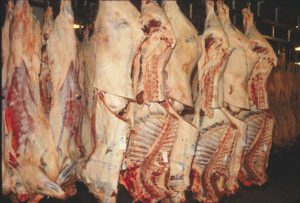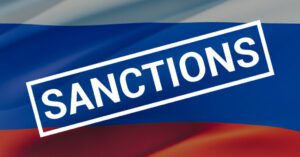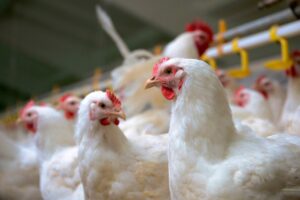
The quota for the export of mineral or chemical fertilizers, nitrogen (UKTVED code 3102) has been reduced from 210,000 tons per quarter to zero, that is, in fact, a ban on the export of these goods from the country has been reintroduced.
The corresponding resolution of the Cabinet of Ministers No. 759 of July 1 was published on its website on Thursday.
Earlier, immediately after the government meeting on July 1, its representative in parliament, Taras Melnichuk, said that nitrogen mineral fertilizers were excluded, along with oats, from the list of goods whose exports are subject to quotas, and are included in the list of goods whose exports are subject to licensing.
However, the published decree regarding oats confirmed this information, but refuted it regarding mineral fertilizers and actually tightened exports, and did not liberalize it.
As reported, nitrogen fertilizers were banned for export at the beginning of March, but at the end of March the government allowed their export within the quarterly quota of 210,000 tons, or 70,000 tons per month.

Ukraine has abandoned the March 5 ban on the export of live cattle (UKTVED code 0102), frozen cattle meat (code 0202) and meat and edible meat by-products, salted or in brine, dried or smoked; edible flour from meat or meat by-products: cattle meat (code 021020).
According to the resolution of the Cabinet of Ministers No. 422 of April 9, published on its website on Sunday night, licensing of the export of these goods was introduced instead of zero quotas.

The President of the European Commission (EC), Ursula von der Leyen, announced on Tuesday proposals for new sanctions of the EU’s fifth package against Russia.
“The ban on coal imports from Russia worth 4 billion euros per year, which cuts another important source of income for Russia. A complete ban on transactions with four key Russian banks, including VTB, the second largest Russian bank,” the report said. statement of the head of the EC, published on Twitter.
BAN, BANKS, EU, IMPORT, RUSSIAN COAL, SANCTIONS, TRANSACTIONS

U.S. President Joe Biden announced on Tuesday a ban on the import of Russian oil into the United States. In a press statement in Washington on Tuesday, he stated: “Today I am announcing new sanctions. We ban all oil imports. The measure has strong bipartisan support. We made this decision in close consultation with allies in Europe.”
At the same time, Biden noted that “our European allies may not be in a position to join us.”
The U.S. President called on Congress to pass a $12 billion aid package for Ukraine. He noted that the United States has already provided Ukraine with a $1 billion security assistance package and is coordinating actions in this area with European allies.
Speaking about the impact of sanctions on Russia, Biden noted that “the Russian economy has cracked.” “The Central Bank of Russia is trying to support the ruble, but cannot do it now. We are restricting Russians’ access to technology, which will weaken its military for many years to come.” “If we don’t confront Putin now, the situation will get even worse,” he said.
BAN, BIDEN, IMPORT, RUSSIAN OIL, US

On February 18, Ukraine imposed a ban on the import of poultry meat and by-products from the United States after an outbreak of avian flu on a turkey farm in Indiana on February 10.
As reported on the website of the Public Health Center (PHC), the ban applies to the import of hatching eggs, birds, products from it (with the exception of products that have been processed by a method that guarantees the destruction of the causative agent of the specified disease), feed, as well as by-products of the poultry industry.
According to the State Customs Service, in 2021 Ukraine imported $122,000 worth of poultry meat and offal from the United States, becoming Ukraine’s 15th trading partner in terms of imports, while Poland ($40.6 million) and Hungary became the largest ($10.3 million).
Avian influenza is an acute infectious viral disease of birds, characterized by damage to the digestive and respiratory organs and high mortality. Influenza affects birds of any age, and the mortality rate for the disease reaches 80-100%.

The Verkhovna Rada intends to prohibit the use of hydrogenated palm oil in the production of food products, mostly consumed by children, to regulate the use of trans fatty acids in them, as well as to establish labeling requirements for foods containing palm oil and fines for their sale. Corresponding bill No. 5148 on amendments to certain laws of Ukraine concerning improving the quality of food products eaten by children was supported at first reading by 304 MPs with the required 226 votes.
According to an explanatory note to the document, it is proposed to ban the use of palm oil in traditional dairy products, as well as hydrogenated palm oil and other hydrogenated vegetable fats in baby food and confectionery.
In addition, the bill prohibits the production and circulation of food products in which the content of trans fatty acids exceeds 2 grams per 100 grams of the total amount of fat in the food product.
The explanatory note states that the sale of food products containing the above substances and ingredients entails the imposition of a fine on legal entities in the amount of 40 minimum wages (currently the minimum wage is UAH 6,000), on individual entrepreneurs – in the amount of 25 minimum wages.
The document also establishes the labeling of products containing palm oil, which, if the bill enters into force, will have to be marked with the easily visible phrase “Contains palm oil” next to the name of the product.